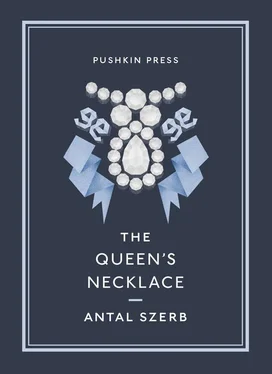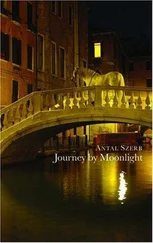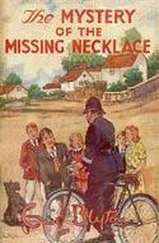The royal family did their best to placate enraged public opinion and its orchestrator, the mutinous Figaro, by staging The Barber of Seville at Trianon with Marie-Antoinette as Rosina. Moreover, which perhaps pleased the great financiers even more, they finally honoured the claim brought against them for 2,150,000 livres.
Meanwhile, night after night at the Comédie Française, Figaro continued to pour his irony and impertinence onto the enthusiastic nobles filling the auditorium.
“No, Count, don’t do it!” he roars, when he hears that his master Count Almaviva intends to seduce his bride Suzanna. “Don’t even try! Just because you are a grand seigneur , do you think that instantly makes you a genius? My, how birth, riches, rank and office make a man proud! But what did you ever do in return for those privileges? You took the trouble to be born, and that was all. Otherwise you’re just like anyone else. But I, damn it, when I was just one of the nameless crowd milling around down there, I had to show more learning and wit just to make ends meet than the entire Spanish Empire did in a hundred years; and you want to start something with me? …”
And sitting there in their boxes, Almaviva and all the other counts rejoiced that at last someone had spoken the truth.
Viewed from a distance, Beaumarchais was not the most ‘left-wing’ of the writers in his time. The Marquis de Condorcet was much more of a revolutionary. In his works he waged war on every kind of social abuse, from forced labour to Negro slavery, and later, when a prisoner of the Revolution, wrote his most resolutely optimistic masterpiece, in which he showed how humanity progresses irresistibly towards freedom and equality … and then took poison. The Abbé Reynal described the behaviour of Europeans in the two Indias, East and West, combining geographical, historical and economic facts with eloquent diatribes against the wars of conquest against the natives. He was introduced to Frederick the Great, and given a ceremonial reception by the Lower House in England; for twenty years his book was a Bible on two continents, and even the young Bonaparte, in his student days, would echo his sayings.
And then “the party of the lost children”, as Taine calls them: “Naigeon and Sylvain Maréchal, Mably and Morelly, the fanatics who laid down the binding dogmas and highest duties of atheism, the socialists who proclaimed a common weal in order to exterminate selfishness, and wanted to establish a society in which all who sought to retain their ‘contemptible private property’ would be declared public enemies, treated as dangerous lunatics and locked away for lifelong solitary confinement.”
These people were sometimes imprisoned by the Ancien Régime, sometimes not, but Mably addressed one of his books to the Duke of Parma, and the Poles asked him to write them a constitution.
“The writers and the ruling class waged a bitter war against each other,” says Mercier, “but there was never any doubt that the former would emerge victorious.”
But the war was not quite as bitter as he suggests. We should not forget that just as the nobility played the role of friends of the people, the writers posed as the upholders of a persecuted but defiant middle-class morality. In reality those who spoke for the Court and the aristocracy were actually in agreement with the writers and the common people: some sort of change was bound to come — in short, revolution. Except that the word ‘revolution’, as used at the time, did not have its present meaning. The Latin revolvere comes from the verb ‘to turn’ (hence the rotating-barrel ‘revolver’), and its early usages all imply a sense of turning, as in ‘ la révolution des saisons ’—the ‘revolving’ seasons of the changing year. As we have already said, in that idyllic and optimistic period, with its predisposition to expect miracles, the coming changes were imagined as being entirely peaceful. Never in their wildest dreams did people imagine that when they did arrive they might be for the worse. “Nothing serves better than the history of our Revolution to persuade philosophers and statesmen of the virtues of humility,” says Tocqueville. “Never was there an event of such magnitude, or one that was more thoroughly prepared for, over a longer period of time, that was less foreseen .”
Count Haga, looking around the city of Paris in 1784, must surely have noticed all the signs, but even he failed to see what was coming. On that negative note I would like to conclude my general survey.
After the Revolution, the often-mentioned La Harpe wrote a little story which better than anything registers the unsuspecting innocence of the years before the Revolution. This account, which we quote word for word in the following, is not a true history, rather a retrospective fiction. But if a prophet, such as Cazotte claimed to be, really had appeared during those years, it might well have been one.
It is as if it all happened yesterday, but in fact we were in the early days of 1788. Some members of the Academy were sitting at table — all noblemen and people of high intellect, since the membership was large and included people from all levels of society: courtiers, high-ranking officials, writers and academics. As usual we had dined extremely well. Over dessert the excellent Malmsey and Rhenish wines had freed up the mood … Chamfort was reading aloud from his godless and outspoken stories, and the more aristocratic ladies had not yet required the assistance of their fans. There was a flood of jokes against the Church; one came from Voltaire’s La pucelle, another from Diderot’s philosophical verses. One of the guests told a story that put a sudden stop to the laughter. His hairdresser had said to him, while applying the powder: “You see, sir, I’m just an oppressed starveling, but that doesn’t make me any less religious than the next man. It’s getting to the point where there could soon be a revolution. It’s absolutely essential that all this superstition and fanaticism should make way for philosophy and take some account of reality. But when that day comes, and who those people will be who bring the triumph about …”
Only one person held aloof from the ensuing uproar of discussion. This was Cazotte, an otherwise congenial if eccentric fellow, sadly given to visionary dreaming. Finally he spoke. In a voice of deadly seriousness he declared:
“Gentlemen, you can be quite sure we will all live to see the great and glorious revolution that people so heartily desire. You know I am something of a prophet, and I repeat, we shall all live to see it.”
The guests poured loud mockery on this. Condorcet led the way.
“You, M Condorcet, will end your days on the floor of a dungeon. You will die of poison you have taken to escape the scaffold — poison you will have been forced to keep about you at all times, in the happy days that lie ahead.”
There was laughter, and Chamfort sprang to Condorcet’s defence. Cazotte told him he would soon know that Eteokles and Polyneikes were brothers, when those who never have food enough to satisfy their hunger set aside a hideous fifteen minutes to attend to those who have more than they can possibly eat. (When the time came, Chamfort opened his veins with twenty-two slashes of a razor.) Next, Vicq-d’Azyr (the Queen’s doctor), Nicolai (a leading member of Parlement), Bailly (the astronomer) and Malesherbes, the Minister of Justice, were each addressed in turn. And always with the one refrain — the scaffold.
“This is incredible,” people cried out from all sides. “Cazotte has sworn that we’ll all be annihilated.”
“I haven’t sworn …”
Читать дальше












